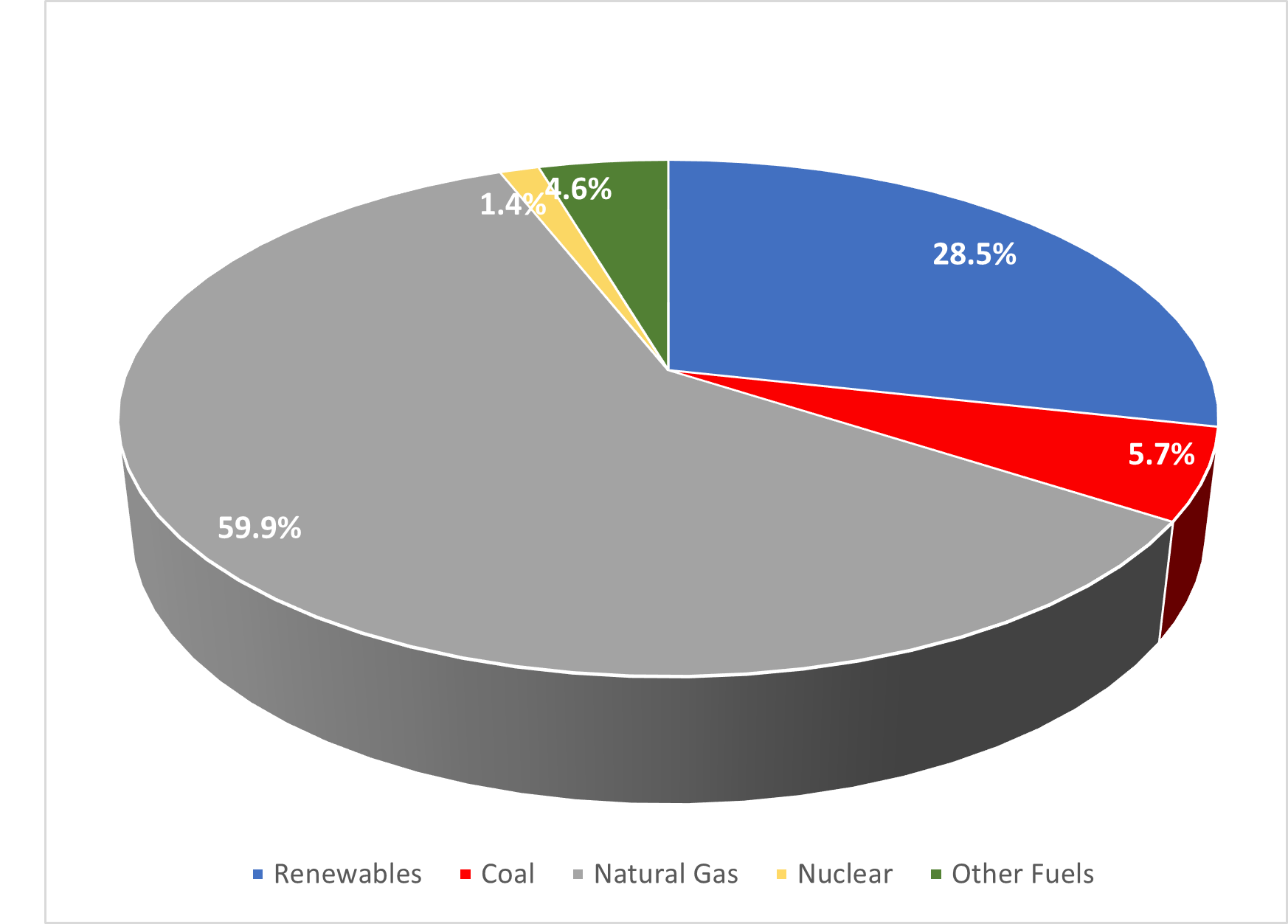Regulations & policies
The latest in energy industry regulations, updates and information.
Where does our electricity come from?
Our Fuel Mix shows where our electricity comes from. We are required by Ofgem to disclose our fuel mix and any part of electricity purchased for supply that we do not hold relevant evidence for is derived from the Residual Fuel Mix.
Business Power and Gas Ltd Fuel Mix Disclosure relates to total electricity supplied in the period 1st April 2022 to 31st March 2023, and is as follows:
Electricity Supplied has been sourced from the following fuels: | Fuel Mix for BPG Energy | Average Fuel Mix for UK* (for comparison) |
Coal | 5.7% | 3.4% |
Natural Gas | 59.9% | 39.3% |
Nuclear | 1.4% | 13.9% |
Renewable | 28.5% | 40.8% |
Other | 4.6% | 2.6% |
*Source is Fuel mix disclosure data table (publishing.service.gov.uk) UK fuel mix (for comparison).
Environmental Impact | BPG Energy | UK Average (for comparison) |
CO2 emissions | 312.2g per kWh | 198.6g per kWh |
Radioactive waste | 0.0001g per kWh | 0.001g per kWh |

The Residual Fuel Mix is taken from the Department of Business, Energy and Industrial Strategy (BEIS) Fuel Mix Disclosure Data Table.
In accordance with the Electricity Act 1989, Section A: Standard Conditions For All Suppliers 11 to 19: Industry Activities and procedures – Part 13 Arrangements for site access, BPG requires safe and unobstructed access to any supply point under our registration at all reasonable times for any purpose, provided that in an emergency access shall be afforded at any time without notice.
The Feed-in Tariff (FIT) scheme is a government programme designed to promote the uptake of small-scale renewable and low carbon electricity generation technologies.
The scheme was introduced in April 2010 and requires participating licensed electricity suppliers to make payments on both generation and export from eligible installations. The FIT scheme is available for anyone who has installed, or is looking to install, one of the following technology types up to a capacity of 5MW, or 2Kw for micro-CHP:
- Solar photovoltaic (PV)
- Wind
- Micro combined heat and power (CHP)
- Hydro
- Anaerobic digestion (AD)
All Licensed Electricity Suppliers are required to participate in some aspects of the FIT scheme, including declaring their FIT status annually and taking part in the periodic and annual levelisation process.
Licensed electricity suppliers cannot offer FIT to customers unless they are confirmed to be a FIT licensee for which their status must be confirmed to Ofgem by 14th February each year based on one of the following three categories:
- Mandatory FIT licensee – Any supplier that has at least 250,000 domestic customers as at 31 December of the immediately preceding FIT year
- Voluntary FIT licensee – Any supplier that has less then 250,000 domestic customers but elect to register and make FIT payments to certain eligible generators
- Non-FIT licensee – for the FIT year starting on 1 April following the FIT notification
For more information on the scheme and how to apply please follow this link to the Ofgem website.
BPG’s status is presently a Non-FIT licensee.
In the 2015 Autumn Statement, the Government announced its intent to reduce the impact of renewables policies on the costs of electricity for the most Energy Intensive Industries (EIIs).
This proposal would see EIIs exempt from a significant proportion1 of the costs of the Renewables Obligation (RO) and the Small Scale Feed-in Tariff (ss-FiT), in order to ensure that they maintain their competitiveness internationally. EII’s are currently entitled to cash compensation from the cost of these schemes (i.e. they pay the costs but receive compensation from the Government). From April 2017, it is proposed that this would change to a direct exemption at source; however, this is subject to State Aid Approval.
Under this exemption, companies operating in sectors such as metal casting, heavy manufacturing and mining will benefit, but non-exempt customers will pay extra to cover the cost of the exemptions. This cross-subsidy will put further upward pressure on prices for these non-EII customers.
What are EII’s?
EII’s are Energy Intensive Industries which include sectors such as mining and heavy manufacturing, and are distinguished by their trade and electricity intensity.
What is the potential impact for non-exempt customers?
It is estimated that approximately 17TWh will be exempt from the Renewables Obligation (RO) and Feed In Tariff (FiT), with non-eligible customers expected to absorb the extra costs. This policy could add approximately £1.10/MWh to the RO forecast and around £0.30/MWh to the FiT forecast. This would mean an increase from current rates upwards of 6.3% and 6.4% for RO and FiT respectively. Costs will be recovered through the invoice charges of non-exempt customers.